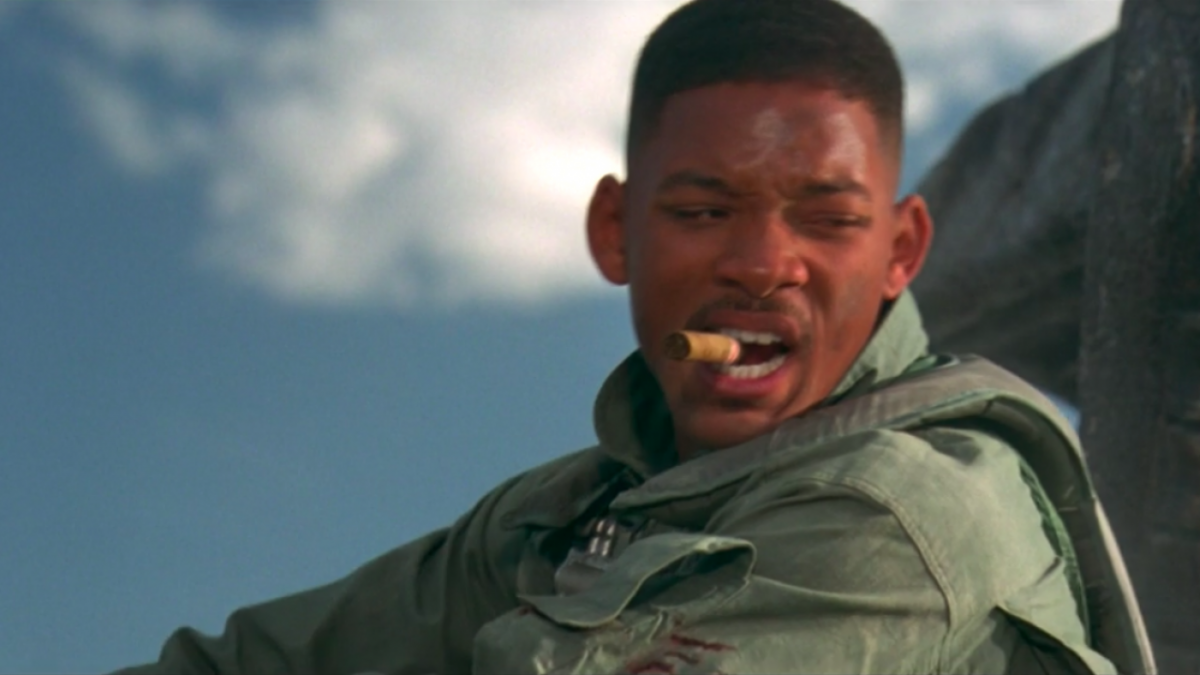“No, Donny, these men are nihilists — there’s nothing to be afraid of.” (The Big Lebowsky, 1998)
Imagine you’re standing in the center of a large warehouse in pitch blackness. While it is so dark that you cannot see, you have an understanding that the room is not in any way ordinary — it has been imbued with a magic that allows representations of everything in existence to be stored within it in vast rows of organized shelves. It contains toys and weapons, delicacies and poison, fascinating mysteries and the drudgingly commonplace, loved friends and sworn enemies, Windows 7 and Windows ME, Ghostbusters (1984) and Ghostbusters (2016), and so on for a near eternity. However, you wouldn’t be able to see any of this in the darkened room at all, save for one trusty tool you find in your hand — a flashlight.
It’s quite a powerful flashlight, but the warehouse is so large that you can only see two or three sections of the warehouse at a time. When you examine the toy section, you find yourself feeling joyful as you pick up the playthings of your childhood and adolescence. As you shine your light on the section labeled “Conflict” and walk through its many shelves, you feel your gut fall into a dark void of hate, despair, and loss. Stumbling along, you find the “Love” section, and the dark void in your stomach is replaced by the warm glow of connection. You feel at peace.
In this allegory, the warehouse is your universe, and the flashlight your perspective from which to view it. The subject at hand is the way in which we view the world, and my purposes are to impress upon you its importance while also providing a method of crafting an optimal perspective.
Although it might seem long-winded to explain what may appear to be a simple word, I would like to first define the word “perspective” itself. It is critical to define its meaning for this essay, because our perspective is quite literally our reality: It is the seat from which we captain our ship. It is the sum total of the values, beliefs, and understanding a person holds in their mind at a given moment. It is also a closely linked to one’s own hierarchy of values, and thus any change to our values will shift our perspective (and vice versa).
While it happens that value hierarchies and the perspectives they generate are commonly found as part of classically identified ideologies (pre-packaged value/belief systems), they can also be encountered everywhere else from internet memes to literature. Unfortunately for us, because our perspectives are the product of a vast number of conscious and subconscious processes, it is very easy to let something influence us. To illustrate, let’s say we are having a bad day and we come across a faux-Folgers advertisement that says “The best part of waking up… Is when you don’t wake up”. Oof. Yeah, we chuckle, and we think we move on to the next thing — but by our implicit agreement with that sentiment, we allow a bit of that fatalistic negativity to subconsciously influence our perspective, tinging it just one shade darker. The reason so many of us struggle with unhealthy perspectives in the digital age may be the same reason many of us still eat fast food on occasion — when we’re in a rush and feel we need something now, our subconscious finds adopting a pre-packaged perspective irresistibly simple.
Some common pre-packaged perspectives today might include cynicism (disbelief in the altruism of others), pessimism (an imbalanced focus on negatives over positives), nihilism (rejection of higher meaning and shared values), or any one of dozens of black and white sociopolitical dichotomies. Don’t get me wrong; it’s entirely understandable that many people are cynical, pessimistic, or nihilistic these days, and there are undeniable benefits to these perspectives: a cynic is rarely disappointed in others. A pessimist is rarely surprised by bad news. A nihilist is freed from the burdens of moral consequence and responsibility. So what is the problem with adopting one of these broad, negative perspectives?
A perspective that’s simple and easy to understand has downsides. Just as a sizzling burger and piping-hot fries might satisfy at the time but leave us deeply regretful later, the long-term effects of a “fast-food” perspective, one that makes overly broad generalizations or logically inconsistent judgements about groups or entities, is far from optimal. For a nihilist, the benefit is also the drawback: if nothing matters, then everything is meaningless — so why continue living? For a pessimist, the continued focus on the negative side of everything is strongly linked to increased stress, anxiety, and negative health outcomes. For someone who uses a black/white dichotomy such as victim/oppressor, what may seem initially like a quick and easy way to know who and what is “good” and “bad” will quickly devolve into logical incoherence and schism once a complex issue is examined in detail.
Thus, the criteria for constructing a perspective shouldn’t just be whether or not it is accurate, but also whether it is beneficial. That is to say, a logically coherent perspective is objectively more useful than one that is logically incoherent because it will provide more accurate predictions, but a coherent perspective that also provides more benefits than another is clearly the optimal choice. It only makes sense that we should curate the perspective that will result in the best outcome for us — but what is “best”, anyway?
The concepts of “good”, “better”, or “best” imply comparison between two or more entities, where one thing is subordinate in desirability to another (see: value hierarchy). These judgements are based on the current situation one is experiencing. As Maslow’s hierarchy of needs demonstrates, when one is suffocating, air is better than water; when one is dying of thirst, water is better than food. So, what is best is determined by what we attribute the most value to in our circumstances — and that means this is something we must decide for ourselves based on our objectives and values.
We must try different perspectives to construct an optimal one. We must ask ourselves what we value and what our objectives are in our current state. Part of being human is trying out different things and seeing if we like it. In our early childhoods, we may value the love and validation of our parents, then the acceptance of our peers. As we get older, we may change to value the acceptance of a romantic interest, saving a targeted amount of money, or achieving certain professional goals. As we get older still, we may value more and more concepts such as love, understanding, or connection (perhaps these are all one and the same?).
Ask yourself: What do I value most highly in life? What are my objectives? The perspective you choose should be the one that bears the most fruit. So now, allow me to return you to the darkened warehouse of my opening allegory, flashlight in hand.
Where do you choose to look?
Douglas Black is a Writer, Business Analyst, Lecturer, DJ/Producer, and amateur psychologist. He can be reached on his LinkedIn.

